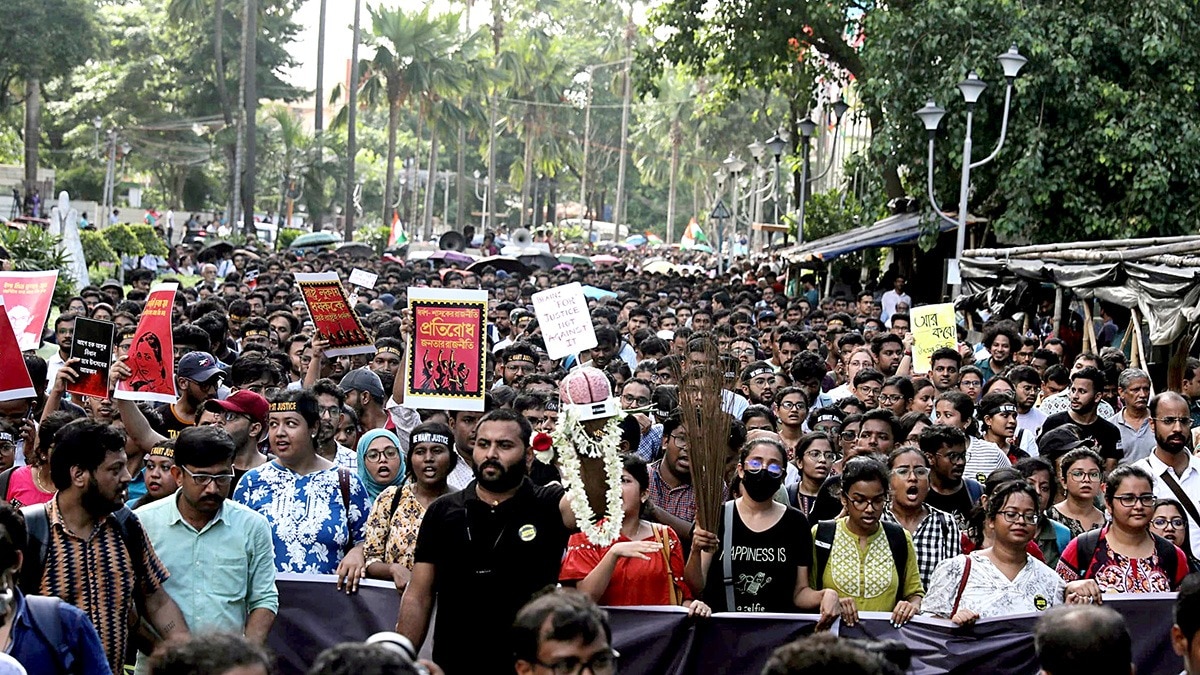
WHY THE DOCTORS-BENGAL GOVT IMPASSE SHOWS LITTLE SIGNS OF ENDING SOON
Since September 10, a fresh impasse has hit efforts to end the doctors' protest in West Bengal over the rape-murder of their colleague at Kolkata's R.G. Kar Medical College and Hospital. A tug of war has commenced between the protesters and the Mamata Banerjee government, playing out over emails.
While the administration decided to invite the doctors for a meeting, they laid down a series of conditions that the government has refused to agree to. The situation has prompted the question whether it is wise for either party to aim for a point of no return.
It all started with Narayan Swaroop Nigam, principal secretary in the state health and family welfare department, on September 10, writing to the doctors and inviting them to Nabanna, the state secretariat. Though he didn't clarify who will be presiding over the meeting and mentioned that senior government representatives would be present, chief minister Mamata Banerjee had herself waited for the doctors till 7.30 pm. However, the letter to the doctors was addressed as "Dear Sir", which they took offence to since they felt it excluded women who have been active participants in the relentless protests.
The doctors replied to the letter and shared their reservations. In the early hours of September 11, they wrote to the chief minister requesting a meeting with her. However, they had several demands: disciplinary action against Sandip Ghosh, the former principal of R.G. Kar Medical College and Hospital; removal of the director of medical education, director of health services, health secretary and the Kolkata police commissioner; and disciplinary action against two deputy commissioners of the police. They also wanted a live telecast of their meeting with the chief minister.
One of the major contentious issues was the size of the delegation the government would allow for the meeting. While the health secretary mentioned "maximum 10 persons", the doctors wanted to send 30 representatives. Replying to their letter, state chief secretary Manoj Pant wrote that the delegation should be "preferably consisting of 12-15 colleagues". The doctors said that since members from all 26 medical colleges of the state were part of the agitation, they could not agree to any number less than 30.
As expected, the state government declared that it can meet the doctors with an open mind but not with conditions imposed upon. Junior health minister Chandrima Bhattacharya, director general of police Rajeev Kumar and Pant met the media and clarified their stand. Bhattacharya, answering a question, said that if disciplinary steps were taken against the doctors for not resuming work, "everyone will get to know".
Sources said Mamata was unhappy with the stand taken by the protesting doctors. While meeting members of business councils at the secretariat on September 11, she reportedly said that the state could not agree to whatever the doctors demanded.
Meanwhile, over two days have passed since the Supreme Court directed the protesting doctors to resume work. Many have opined that to act against the orders of the top court may lead to a situation of anarchy. The three-judge Su*preme Court bench hearing the R.G. Kar case suo motu had observed: "The resident doctors cannot be oblivious of the needs of the general community whom they are intended to serve and they should return to work within the time indicated."
The doctors claim the court has also ordered the state to ensure their security, and unless that is done the question of resuming work doesn't arise. But, as a matter of fact, the court has allowed a time of seven days for the state to put things in place and asked the doctors to resume work for the sake of the patients.
It was learnt on September 12 that the state director of medical education had written to the principles of all medical colleges, asking them to report the number of junior doctors who had resumed work as per the instructions of the Supreme Court.
Senior doctors who are working overtime to compensate for the absence of the protesting junior doctors have said that if the government takes action against their colleagues, they too would cease work.
Clearly, this impasse doesn't appear to be reaching a resolution anytime soon. While a wide section of the society has extended support to the doctors, the question is whether it will be healthy to take extreme positions come what may.
2024-09-12T14:21:22Z dg43tfdfdgfd